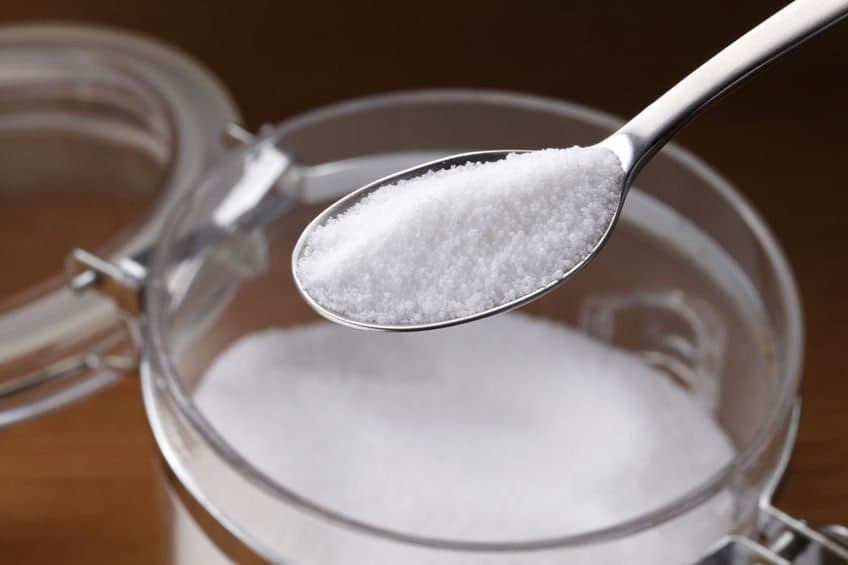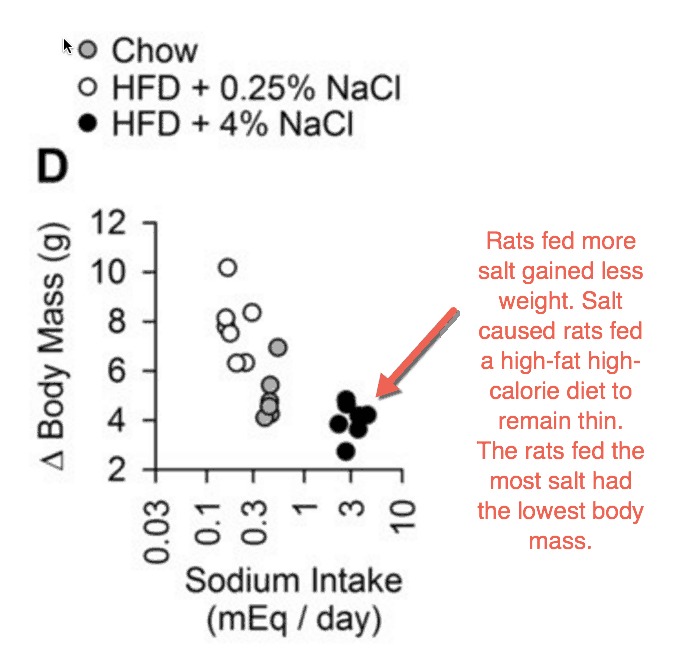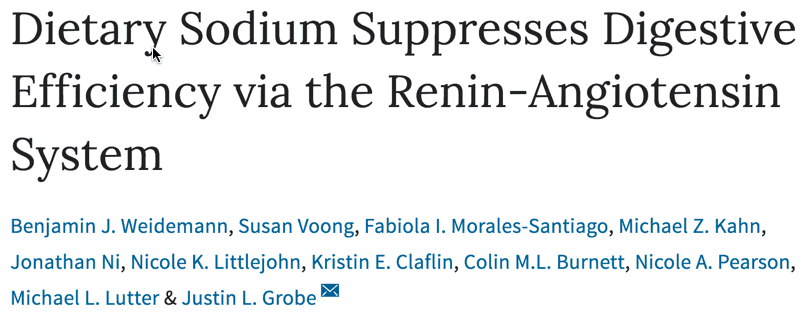
[cmamad id=”3045″ align=”center” tabid=”display-desktop” mobid=”display-desktop” stg=””]
It’s very trendy to recommend restriction of salt intake.
But it may not be wise.
In today’s newsletter, I show you two important studies on the need for salt.
And I’ll show you how you may actually get a lot better if you dramatically increase your salt intake.
In this study, they fed rats high-fat diets.
The results were striking!
 As you can see, the rats fed more salt had the lowest body mass.
As you can see, the rats fed more salt had the lowest body mass.
The researchers speculate that salt interferes with the rennin-angiotensin system.
The rennin-angiotensin system is a series of hormones that work together to regulate blood pressure.
But suppressing this system, blood pressure is kept lower.
[cmamad id=”3046″ align=”center” tabid=”display-desktop” mobid=”display-desktop” stg=””]
This would make the body of an obese person consuming a high amount of salt similar to a non-obese person.
The rats ate JUST as much, even the high-salt rats.
But the high-salt rats remained lean.
The researchers report that the high salt results in lower obesity.
exclusively through a suppression of digestive efficiency, which results from a sodium-induced suppression of the renin-angiotensin system.
If you are trying to fight obesity with salt, you would want a dose in the range of 2 tablespoons of salt per day.
Before you take this much salt or do anything like that, you should talk to your doctor about it first.
The benefits of salt have been known for a long time.
And there’ve been many other studies like this.
 In this study, the researchers determined that a low salt diet results in a fatty liver disease, and lower metabolism in rats.
In this study, the researchers determined that a low salt diet results in a fatty liver disease, and lower metabolism in rats.
This is based on the low salt diet that many so-called experts are recommending,
Rats on a low salt diet produced 50% more fat than rats on a regular diet.
This raises the possibility that a decrease in overall energy expenditure, together with an increased uptake of fatty acids from the circulation, may account for the excessive lipid accumulation in low salt diet rats.
This is another mechanism where salt is important for weight and metabolism.
Low-salt diets seem to lower metabolism.
They also result in fatty liver and other very negative changes in fatty tissue.
These are all reasons to make sure you’re getting plenty of salt.

http://www.nature.com/articles/srep11123
Dietary sodium restriction exacerbates age-related changes in rat adipose tissue and liver lipogenesis
http://www.ncbi.nlm.nih.gov/pubmed/12898476

